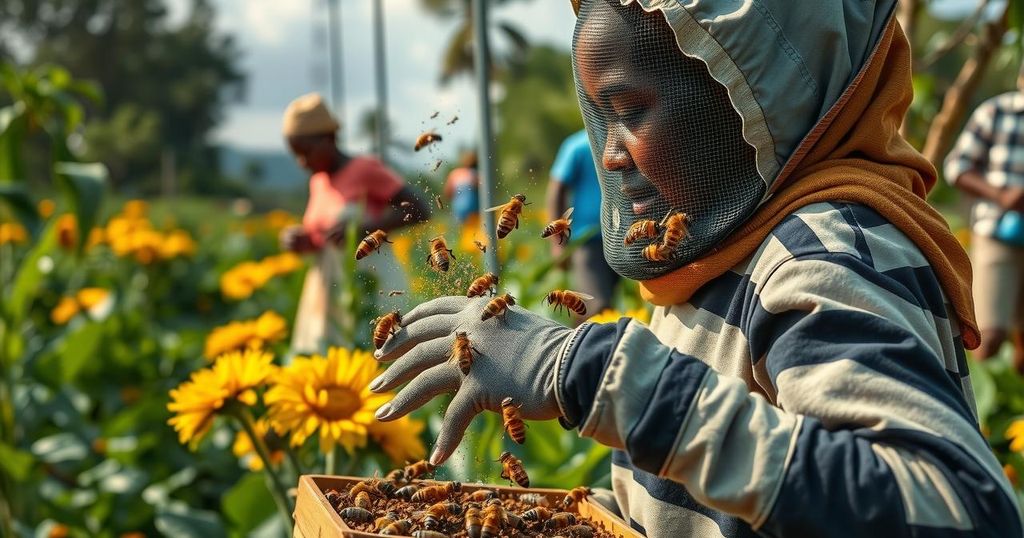Communities in Kenya face significant challenges due to climate change, impacting traditional livelihoods like farming. Conservation experts are promoting beekeeping as a climate-resilient alternative, offering economic benefits while supporting environmental health. This initiative aims to empower vulnerable populations amid changing weather patterns.
In Kenya, communities residing in arid and semi-arid regions are grappling with the adverse impacts of climate change, which often manifest as severe droughts and unpredictable floods. According to the U.N. Environment Program, these climatic shifts severely undermine traditional livelihoods, notably agriculture and livestock rearing. In response to these challenges, conservation experts are actively promoting beekeeping as a sustainable alternative livelihood. This initiative not only aids in economic resilience but also enhances biodiversity and environmental health, serving as a vital resource for coping with climate irregularities.
The phenomenon of climate change is particularly detrimental to those living in drylands, where agriculture is already a precarious endeavor due to limited water availability and variable weather patterns. As traditional farming methods become less viable, communities require innovative strategies to adapt to their changing environment. Beekeeping presents a promising solution, offering both economic and ecological benefits while supporting food security and conservation efforts. The engagement in beekeeping allows communities to diversify their income sources and harness the natural resources available to them.
In summary, the adaptation of beekeeping in vulnerable Kenyan communities symbolizes a positive response to the detrimental effects of climate change. By providing an alternative means of livelihood, beekeeping fosters economic resilience and supports the maintenance of ecological balance. As communities increasingly adopt this practice, they are better equipped to face the challenges posed by climate change, potentially leading to a sustainable future for themselves and their environment.
Original Source: www.voaafrica.com






